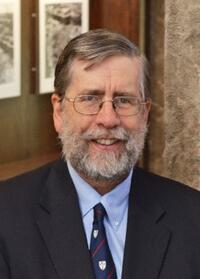323: Bringing Back Wonder to Your Life

Podcast: Download
When was the happiest time of your life? I mean like inner-happy type happy?
For me, it was definitely as a kid. My childhood was by no means all roses, but the little things in life brought me a ton of joy.
I remember riding my bike to friends’ houses and knocking on their doors (that’s what we did in the 80s), getting together a group of friends for an impromptu baseball game or just riding around on our bikes and going places we shouldn’t have gone.
School was fun during elementary school. It felt like a camp. You got to go see your friends everyday, play at recess and learn some cool stuff. No pressure…just a pure routine.
I had my intellectual curiosities as well. When I wasn’t at school I would be closely studying the sports pages of the newspaper. I was a virtual encyclopedia on both the NHL and the NFL. It was pure joy for me to scour the library for books on famous athletes.
By the time high school rolled around, a lot of the joy of academics was gone for me. I was good at school but definitely preferred to party and to play sports. And of course I discovered girls which brought a new level of interest for me to be at school.
While I kept a steady state of party going in college, my academic work now became a job. When I decided to go to medical school, I realized I couldn’t afford to take art and acting classes for fear of them bringing my grade point average down. I had to stick to advanced biochemistry and molecular biology!
I wasn’t doing any sports anymore and I had no real intellectual pursuits outside of my job as a premed student (and organic chemistry tutor). Medical school was really interesting but the specialization left little time for anything else in my life.
As I track these different times in my life I can see the inner joy levels dropping precipitously at each step. Why? Well, my drops in inner happiness seem to be correlated to the times in my life when I transitioned from enjoying the present time as a kid to focussing primarily on the future as I progressed to college and medical school.
I spent so much of my life sacrificing the present for things in the future. I gave up most of my 20s to medical school and surgical residency. Then I set my mind to create successful businesses and investments so that I could make all the money that I wanted to make.
But now I’m kind of here. Sure I’m always happy to become richer but I have already surpassed anything I thought I would make. So now what?
Of course I continue doing what got me here but I recently realized that something was really missing in my life.
Thinking back to what made me happy as a kid, I decided to see if I could reverse engineer myself back into having a child’s mindset.
Here’s some major things that made me happy as a kid:
- Playing sports. I was a good athlete. I even have one of those elite power athlete genes!
- Being part of a community. I didn’t realize how hard it is to make close friends once you leave a school situation.
- Learning new stuff. For me, this is critical. I need intellectual stimulation. If I am not learning I feel like I am dying.
- Focusing on gratification today. Yes I mean gratification. We spend so much of our time planning for the future that we forget to have fun today. So yes…spend some of that money because you can’t take it with you.
So here’s my plan. I’m going to get active in local sports leagues. I’m going to start volunteering in the community. I am going to read a book about something random every week. And I’m going to buy some fancy shit and not feel guilty. I’m not kidding. I’ll tell you how it goes!
All of this stuff I’m talking about has been on my mind for a while. Then I heard about the work of Frank Keil, a researcher at Yale who has been studying the concept of Wonder in childhood and was intrigued by how these ideas could be applied to my own journey.
Dr. Keil’s research on children and wonder is fascinating and might provide you some ideas on how to bring some youthful vigor back into your own life. Listen HERE for this week’s episode of Wealth Formula Podcast.

Professor Frank C. Keil (Ph.D., University of Pennsylvania, 1977) is the director of the Cognition and Development lab.
At the most general level he is interested in how we come to make sense of the world around us. Much of this research involves asking how intuitive explanations and understandings emerge in development and how they are related to notions of cause, mechanism and agency. These relations are linked to broader questions of what concepts are, how they change with development and increasing expertise and how they are structured in adults.
One set of current studies is examining a level of explanatory insight that functions without knowledge of specific mechanisms and instead involves knowing what sorts of properties are causally potent in a domain and how they are likely to interact. These patterns vary considerably across large scale domains of phenomena such as living kinds vs. artifacts) and a partial understanding of these patterns emerges very early in development and guides learning of more detailed domain specific beliefs. Other studies are examining constraints on preferences for some explanations over others even when there is little or no specific knowledge of the phenomena under explanation.
He is also asking how emerging knowledge of concrete mechanisms can link up frequency based information with abstract explanatory principles as well as cause distortions in judgment. A key part of developing such understandings also involves learning how knowledge is clustered and distributed in the minds of others and how best to access that knowledge. He is exploring dramatic developmental and individual differences in how the social distribution of knowledge is understood. Finally, there is a longstanding interest in links between conceptual and semantic development and how the emergence of language interacts with conceptual structure.
 Send Buck a voice message!
Send Buck a voice message!



